Although the National Procurement Policy Statement was published back in June 2021, it’s full impact is still to be felt by contracting authorities and the procurements that they run.
Its aim is to set out the strategic priorities for public procurement, and how contracting authorities must support these. It’s published as an ‘Action Note’ that all contracting authorities (as defined in the Small Business, Enterprise and Employment Act 2015 and Public Contracts Regulations 2015) must follow. Broadly speaking, this includes all English contracting authorities that the current PCR 2015 apply to.
The National Procurement Policy Statement (NPPS) sets out the UK Government’s aim to leverage public procurement to support both local and national policy outcomes, where it’s relevant to the subject matter of the contract and proportionate to do so.
Such is the emphasis on the policies in the NPPS that it was published in June 2021, well in advance of the legislation that will deliver many of its aims. By now, most procurement stakeholders should have read, or at least be aware of, this document.
Through this two-part briefing we will consider its messages and how they impact public procurement.
Social Value
Contracting authorities should consider the following national priority outcomes alongside any additional local priorities when carrying out their procurement activities:
- Creating new businesses, new jobs and new skills in the UK
- Improving supplier diversity, innovation and resilience
- Tackling climate change and reducing waste.
These priorities are to be factored into public procurement as part of the procurement objective of value for money.
This is explained in the NPPS in the following context; “Achieving value for money in public procurement remains focused on securing from contractors the best mix of quality and effectiveness to deliver the requirements of the contract, for the least outlay over the period of use of the goods or services bought”.
One of the difficulties when introducing socio-economic and environmental elements such as the national priority outcomes to public procurement is that procurement can lose some of its commercial focus.
What I mean by commercial focus is that it is still important to ensure that procurement supports public bodies in maximising the benefits that they are able to deliver, through efficient and effective use of their budgets, while at the same time trying to deliver socio-economic and environmental benefit.
The NPPS reiterates that procurers do not have to award a contract based on the lowest priced bid.
This communicates that the NPPS’ definition of value for money includes “the improvement of social welfare or wellbeing, referred to in HM Treasury’s Green Book as social value”.
The Green Book also lists “Potential Value for Money” as a critical success factor and defines this as “How well the option: optimises social value (social, economic and environmental), in terms of the potential costs, benefits and risks”.
The NPPS expands upon the national priority outcomes as follows:
“Creating new businesses, new jobs and new skills:
- increasing opportunities for entrepreneurship and helping new and/or small businesses to grow, supporting higher economic growth and greater business creation;
- increasing employment opportunities particularly for those who face high barriers to employment or who are located in disadvantaged areas;
- extending training opportunities, particularly for people in industries with known skills shortages or in high growth sectors.
Tackling climate change and reducing waste:
- contributing to the UK Government’s legally binding target to reduce greenhouse gas emissions to net zero by 2050;
- reducing waste, improving resource efficiency and contributing to the move towards a circular economy;
- identifying and prioritising opportunities in sustainable procurement to deliver additional environmental benefits, for example enhanced biodiversity, through the delivery of the contract.
Improving supplier diversity, innovation and resilience:
- creating a more diverse supply chain to deliver the contract, which will better support start-ups, small and medium-sized businesses and VCSEs in doing business on public sector contracts;
- increasing innovation and the use of disruptive technologies and business models throughout the supply chain, to deliver lower cost and/or higher quality goods and services, and encourage the wider adoption of innovation
- contributing to the development of scalable and future-proofed new methods to modernise delivery and increase productivity.”
The NPPS pragmatically suggests linking the development of strategies, business cases and other elements of projects such as procurement specifications. This is because coordinating the components of a successful procurement requires effective project management, especially for more technically, legally or financially complex ones. Also, in terms of the national priorities that the NPPS discusses, it gets progressively harder to add socio-economic and environmental elements the later in a procurement exercise you are, especially where these have not been considered from the outset.
As well as considering social value from the outset, the NPPS caveats that when taking additional social value benefits into account in procurement exercises, these should be in “balance with delivery of the core purpose of the contract” and that authorities should not “gold plate contracts with additional requirements” that could more easily be delivered outside the procurement process.
The good news is that these national priority outcomes are not new ideas and will in many cases match or overlap with the local priorities that the NPPS mentions.
Part 2 of this briefing will cover the remaining sections of the NPPS that discuss the government’s policy on ‘Commercial and Procurement Delivery’ and ‘Skills and Capability for Procurement’.
We are publishing a range of other briefings and blogs, covering topics such as Open Frameworks, Changes to the Challenge Process, Reserving Below Threshold Contracts and Changes to Standstill.
Find further procurement reform comment and insight at www.procurementreform.co.uk.
If you would like advice on this or any other aspect of public procurement, please complete our enquiry form or call us on 0141 270 7666.
While all information provided is given in good faith, the contents of these articles are not to be construed as legal advice or a substitute for such advice, which you should obtain from your legal advisors if required. We are not and shall not be held responsible for anything done or not done by you as a result of the information provided.


